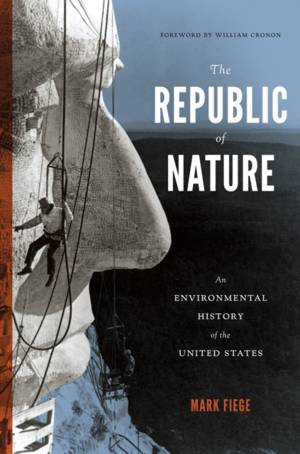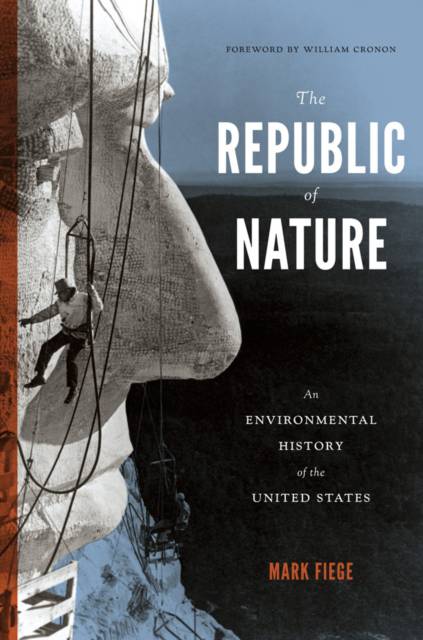
- Afhalen na 1 uur in een winkel met voorraad
- Gratis thuislevering in België vanaf € 30
- Ruim aanbod met 7 miljoen producten
- Afhalen na 1 uur in een winkel met voorraad
- Gratis thuislevering in België vanaf € 30
- Ruim aanbod met 7 miljoen producten
Omschrijving
In the dramatic narratives that comprise The Republic of Nature, Mark Fiege reframes the canonical account of American history based on the simple but radical premise that nothing in the nation's past can be considered apart from the natural circumstances in which it occurred. Revisiting historical icons so familiar that schoolchildren learn to take them for granted, he makes surprising connections that enable readers to see old stories in a new light.
Among the historical moments revisited here, a revolutionary nation arises from its environment and struggles to reconcile the diversity of its people with the claim that nature is the source of liberty. Abraham Lincoln, an unlettered citizen from the countryside, steers the Union through a moment of extreme peril, guided by his clear-eyed vision of nature's capacity for improvement. In Topeka, Kansas, transformations of land and life prompt a lawsuit that culminates in the momentous civil rights case of Brown v. Board of Education.
By focusing on materials and processes intrinsic to all things and by highlighting the nature of the United States, Fiege recovers the forgotten and overlooked ground on which so much history has unfolded. In these pages, the nation's birth and development, pain and sorrow, ideals and enduring promise come to life as never before, making a once-familiar past seem new. The Republic of Nature points to a startlingly different version of history that calls on readers to reconnect with fundamental forces that shaped the American experience.
For more information, visit the author's website: http: //republicofnature.com/
Specificaties
Betrokkenen
- Auteur(s):
- Uitgeverij:
Inhoud
- Aantal bladzijden:
- 600
- Taal:
- Engels
- Reeks:
Eigenschappen
- Productcode (EAN):
- 9780295993294
- Verschijningsdatum:
- 1/08/2013
- Uitvoering:
- Paperback
- Formaat:
- Trade paperback (VS)
- Afmetingen:
- 150 mm x 226 mm
- Gewicht:
- 884 g

Alleen bij Standaard Boekhandel
Beoordelingen
We publiceren alleen reviews die voldoen aan de voorwaarden voor reviews. Bekijk onze voorwaarden voor reviews.









